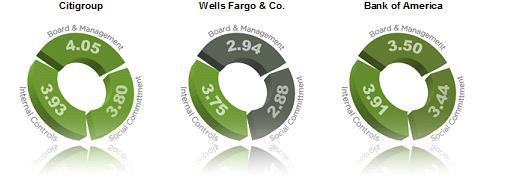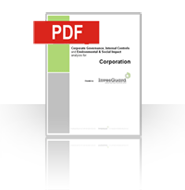Goldman Sachs Senate Hearing April 2010
InvesGuard’s Goldman Sachs Report on SALE ONLY TODAY!
10.25 Government putting forth their case.
10.40 3rd Senator on now….this is going to be painful….
10.46 Finally, Goldman employees and ex employees start their testimony. First off is ‘Fab’ Tourre’s boss.
Mr.Sparks talks about how difficult it was sometimes to understand whether Goldman’s position was long or short.
11.02 Tourre is on now….has worked at GS since 2001…..connected clients as part of his job profile…I feel like I am listening to Inspector Clouseau….Fab denies all allegations by SEC. Clients had comprehensive experience also rebuffs the claim that he represented to the clients that Paulson’s fund would be an equity investor. Very strong and confident testimony. “ACA deal was not designed to fail”.
11.10 Senator Question- Goldman is selling Anderson securitites but Goldman is itself short on these CDO’s. Many clients reject this deal and yet GS pushes this deal. Clients asked GS- How did GS get comfortable with this collateral or this deal? GS response- no response from GS but instead pushes to sell this deal and unloads $20 billion of these assets. GS supervisors congratulates his team. Why did GS not disclose that they were short on the Anderson deal?
GS Response to question- Cannot make out from the evidence presented whether GS was short or long on the assets.
Senator- If you were short, should you have disclosed to your client or not that you were short on the same transaction that it was selling to clients.
GS- Would have got the sales team with the deal team and made sure that the client’s doubts were answered.
Did GS make money on the Anderson deal? Those assets were downgraded from AAA status to junk status within 7 months.
More questions on other deals that GS did not disclose to the clients that they were short or that the assets behind the deals were “shitty” as the Chairman of this sub committee puts it. The chairman has already used the word “shitty” atleast 12 times.
11.34 Senator Collins starting now.
Q- Do you believe you have a duty to act in the best interests of your client?
Answers- All GS representatives (except Mr. Birnbaum) are hedging their answers. If I were a GS client, I would run away at this point.
General frustration among the committee members that GS representatives are following a strategy to delay the hearing but as the Chairman put it, the committee would take as long as it was needed to get everything out.
After a series of email reference page number mix ups, the committee is now getting its act together.
Question- How could GS use ’stated income’ method for 50% of sub prime loans which were subsequently securitized by GS.
(stated income method is somebody’s income is what individuals claim their income is stated to be and is generally used for mortgage purposes for high net worth individuals only)
12.36 Q to Fab Tourre- Are you personally represented by lawyers paid for by GS? Tourre- Yes
Q to Tourre: How did you feel when your personal emails (about the transactions) were released to the press? Tourre- “I regret what I did ”
1.11 Should GS have disclosed that Paulson was on the deal? Sparks- Not necessarily….there is no obligation to disclose who is behind the transaction.
Sparks- We made mistakes like any business makes….
Question: Did GS actions contribute to the market’s downfall?
Sparks: Need to think….later says “I take responsibility for my actions”
Swenson: We did nothing wrong
Tourre: I am sad and humbled by what happened in the market. I believe my conduct was proper. I take responsibility for my actions.
A brief discussion on how Wall Street is similar to Las Vegas, although as a senator put it “Vegas would be insulted to be compared to Wall Street”.
Question: How would you justify BBB related products, package them and have rating agencies rate the same products as AAA?
Tourre: Rating agencies have their own rating assumptions. Rating agencies rely on historical data for rating.
Sparks: Certain deals would perform differently from others.
Question: Did you feel obligated to inform your clients that these were BBB rated products and rating agencies in their wisdom rated them as AAA?
2.51 Hearing getting repetitive….same questions being asked. Bankers are seasoned professionals and frankly, the questioners don’t have enough meat to thoroughly question them.
3.16 Chairman’s closing comments- Should your customers know that you are betting against the whole market? When you sell to your customers should they know that you betting against those assets? A huge conflict of interest.
End of First Panel.
CEO Lloyd Blankfein in response to a question- I have heard of transactions (during panel 1 and 2 inquiry) that I have not heard of before. I will look deeply into those.
Looking back at today, would you rather be an investment bank? Blankfein response- We will see how the legislation unfolds.
“Generally supportive” of the pending Dodd bill that covers financial legislation but it sounded like he is sitting on the fence for that one….said that he would have to see details.
Blankfein is asked his opinion (what was that all about?! Blankfein’s opinion in a hearing….) on what will happen to smaller community banks who are asked to keep 5% of mortgage loans advanced (part of Dodd’s bill). This is really not relevant from a hearing perspective, not sure I understand why this was asked.
Question: Have you in the last 6 to 8 months talked with treasury about financial legislation?
Blankfein: Yes in a general way.
Everything seems to be ‘general’ with Lloyd Blankfein.
Again, his opinion on what are the ways to limit systemic risks. (Same interviewer)
Blankfein- “For sure we need apparatus”….observe different people and processes.
Hmmm, all this opinion is making me wonder if Blankfein is in line to take over from where former treasury secretary Paulson left off……
Pep Talk by Blankfein of how it is not good for the country if Goldman Sachs was perceived as ‘too big too fail’.
Ethical question : Why did GS decide to release the personal emails of ‘Fab’ Tourre and why not of anybody else at GS.
CEO Blankfein stumbling badly, says, “elements here (in these emails) that spoke badly about the firm and we wanted to come abreast of this……”
Statement by a senator “Somebody is being made a whipping boy (Tourre)”
Once again Blankfein stumbles and basically says that fears that the emails would be leaked to the press made GS decide to come clean on their own.
Goldman Sachs CEO has no clue whether the company has any off balance sheet vehicles. When asked, Blankfein is totally unable to say whether his company has such vehicles.







